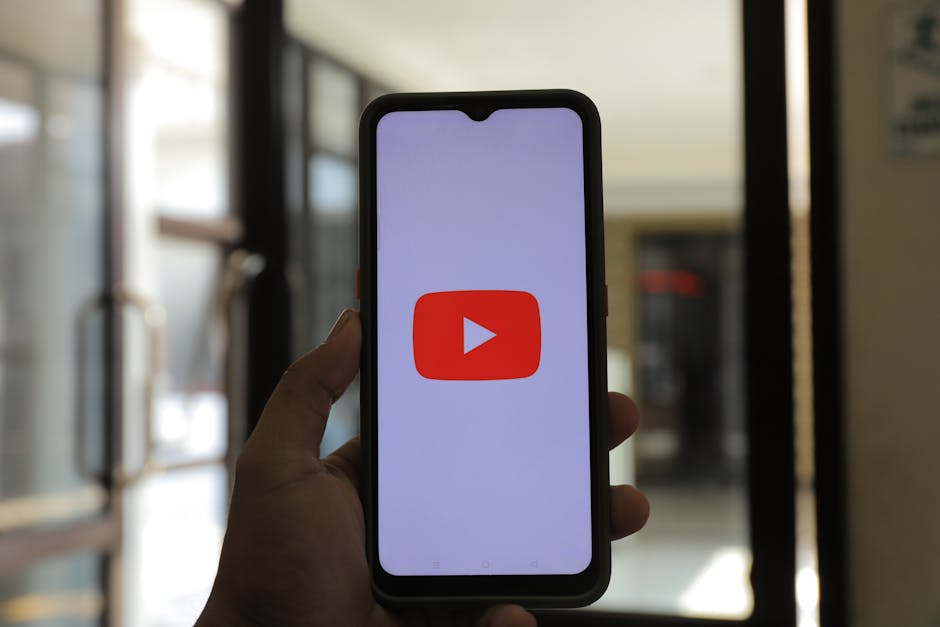
So, like, you’re sitting there, maybe thinking about building an app for your phone, right? And normally, people just kinda go straight for Swift or Kotlin, or maybe one of those JavaScript frameworks that everybody talks about. But then, if you’ve been around the block a bit with software, you might have, you know, worked with C# before. It’s a language that’s been doing a lot of things for a long time, mostly on Windows computers and servers and such. For ages, it wasn’t really something you’d immediately think of when somebody said, “mobile app.” That was just kind of how it was understood. But things, they change, and sometimes they change pretty quickly, especially in the world of computer programs and what they can do. And it’s like, what was true yesterday, or even last year, might not be the actual situation today, or heading into 2025 here. It really isn’t. So, if the question “can I use C# for mobile app development” is bouncing around in your head, well, let’s just say the answer is way more interesting than it used to be. It definitely is.
Remember C#? Yeah, It’s for Phones Now. It Really Is.
For a good while, C# and mobile phones felt like two totally separate universes. You had your big desktop applications, your server-side stuff – that’s where C# normally played. But then, little by little, this idea of writing C# code for something that fits in your pocket started to get some real traction. Xamarin was like the first big step, it really was. That was a tool, or more like a bunch of tools, that allowed folks who knew C# to make apps for Apple phones and Android phones using pretty much the same base code. This was a pretty big deal at the time, because before that, you were looking at learning like two different languages and two different ways of doing things, which is a lot of work.
It was considered a useful way to not duplicate all your efforts, which is generally a good thing, you’d think. Microsoft went ahead and got Xamarin, bringing it right into their whole family of developer tools. And from there, the journey just kept going. It’s that this technology just keeps getting better. What we have now, the thing everyone’s talking about, is .NET MAUI. It’s what came after Xamarin, pretty much. It kinda picked up the torch and ran with it, making the process of building apps for different devices even smoother, or at least, that was the goal with it.
What’s the Deal with .NET MAUI for Mobile Stuff?
So, .NET MAUI, or Multi-platform App UI, is the current champion when you’re thinking about C# and mobile apps. It is a thing that lets you write your code once, or mostly once, and then you can take that code and have it run on Android gadgets, Apple phones, and even desktop computers running Windows or macOS. That’s a pretty sweet deal if you ask most people, because it means less writing different versions of the same app. This way, if you fix a bug in one place, it’s fixed everywhere. Or that’s the hope, anyhow.
The main idea behind it is sharing a whole lot of your code. Your business logic, the stuff that makes your app actually do what it’s supposed to, that’s all C#. And then, the parts you see on the screen, the user interface, you can write that once too, and MAUI will sort of translate it for each specific device. So, it’ll look like an Android app on an Android phone, and like an iPhone app on an iPhone. This is quite handy for keeping things consistent and making sure your branding looks right, no matter what kind of phone someone has. It’s a pretty clever system, really, for handling all those different screen sizes and button types and everything else. It really is.
How Does This C# Mobile Thing Actually Work Out?
When you use C# for your mobile applications, with .NET MAUI doing all the heavy lifting, there are some generally good things that come from it. For starters, if you or your team already know C#, then you don’t gotta spend a ton of time learning a whole new language just to build for phones. That saves time and, well, money, because training can be expensive. Plus, C# is a really solid, well-put-together language, with lots of stuff built around it to make programming easier. There’s a big library of things you can just use, and plenty of tools to help you write and test your app.
The apps built with C# and MAUI are often quite good performers, too. They’re not just slow web views jammed into a phone; they generally run pretty close to how an app written specifically for that phone would run. And that’s a big plus, because nobody likes a sluggish app, do they? If you’re looking for help getting started with this kind of work, or if you’ve got a project already in mind, a place like Mobile app development Houston could certainly point you in the right direction. They usually know the latest things in app building. Having good tools around you and people who know what they’re doing, it just makes the whole process smoother, it genuinely does. So, for many businesses, it just makes a lot of sense, you know, to pick a method that works.
Any Downsides to Building Apps with C#? Well, maybe a few.
Now, it wouldn’t be fair to just talk about all the bright sides without mentioning a few things that might not be perfect. Because no tool is perfect for absolutely everything, right? It’s just how these things are. One thing is, even though .NET MAUI is quite good, sometimes you might run into situations where you need to do something super specific to just one kind of phone, like an Android or an iPhone. And sometimes, that can be a little bit trickier to figure out compared to if you were just writing code directly for that one phone type. It can involve a bit more fiddling, it truly can.
Also, while the C# developer community is big, for mobile specifically, it’s perhaps not as sprawling as the communities for some other mobile-focused languages or frameworks. That just means sometimes finding answers to really unusual problems might take a tiny bit longer, or you might have fewer examples to look at online. It’s not a huge problem, generally, but it’s something to consider. And like with any newer technology, there might be a few bumps in the road as new versions come out and new features are added. But really, these are pretty minor things for what you get in return. It usually is.
Looking Ahead: C# and Your Pocket Gadgets.
So, where does C# stand heading into 2025, and what’s it looking like for mobile apps? Honestly, things are pretty positive. Microsoft is clearly putting a lot of effort into .NET MAUI and the whole .NET ecosystem. They keep adding new stuff, making it work better, and fixing things. So, it’s not like a technology that’s just going to disappear overnight. It’s got some real backing behind it, which is always nice to see for something you’re thinking of investing your time or money into. That’s for sure.
For businesses and individual builders alike, using C# means you’re tying into a very well-established platform that’s only gotten stronger. It gives you a way to reach a lot of people on different kinds of phones and computers without having to redo everything from scratch multiple times. That’s a pretty good deal, it really is. And as more people start using it and more examples pop up, it’ll only get easier for folks to get into it. So, if you’re wondering if C# is a good bet for mobile, the short answer is, yeah, it definitely is a pretty strong contender these days. It certainly can do the job for a lot of what people want to build.
—
FAQs: Can I Use C# for Mobile App Development?
1. Can I use C# for mobile app development on both Android and iOS?
Yes, you definitely can! With something called .NET MAUI, which is Microsoft’s current tool for this, you write your code in C# and then it gets built into apps that run on both Android phones and Apple iPhones. It’s pretty slick, really, how it handles both kinds of devices.
2. Is C# a good choice for mobile app development if I already know C#?
Oh, absolutely, it’s a great choice if you already know C#. You don’t have to learn a whole new language like Swift or Kotlin, which saves you a bunch of time and effort. You can just use your existing C# skills and get right to building apps for phones. That’s a big plus, right?
3. Will apps made with C# for mobile app development run slowly?
Normally, no, they run pretty well. Apps built using C# and .NET MAUI compile down to native code, which means they perform very much like apps written directly for Android or iOS. You shouldn’t expect them to be slow or clunky just because they started as C# code. They usually work just fine.
4. Are there enough resources and help available if I choose C# for mobile app development?
Yeah, generally speaking, there are plenty of resources. C# has a very big community because it’s been around for so long. While .NET MAUI is newer, it’s got strong backing from Microsoft, so there are lots of official documents, tutorials, and people online who can help you out if you get stuck. It’s normally not hard to find some kind of guidance.
5. Can I use C# for mobile app development for different platforms besides just phones?
You bet! That’s one of the cool things about .NET MAUI. It’s not just for mobile phones. You can actually use the same C# codebase to build apps for Windows computers and macOS computers too. So, you can reach even more people with your app without having to write it from scratch for each different type of device. It’s pretty versatile, you know?






